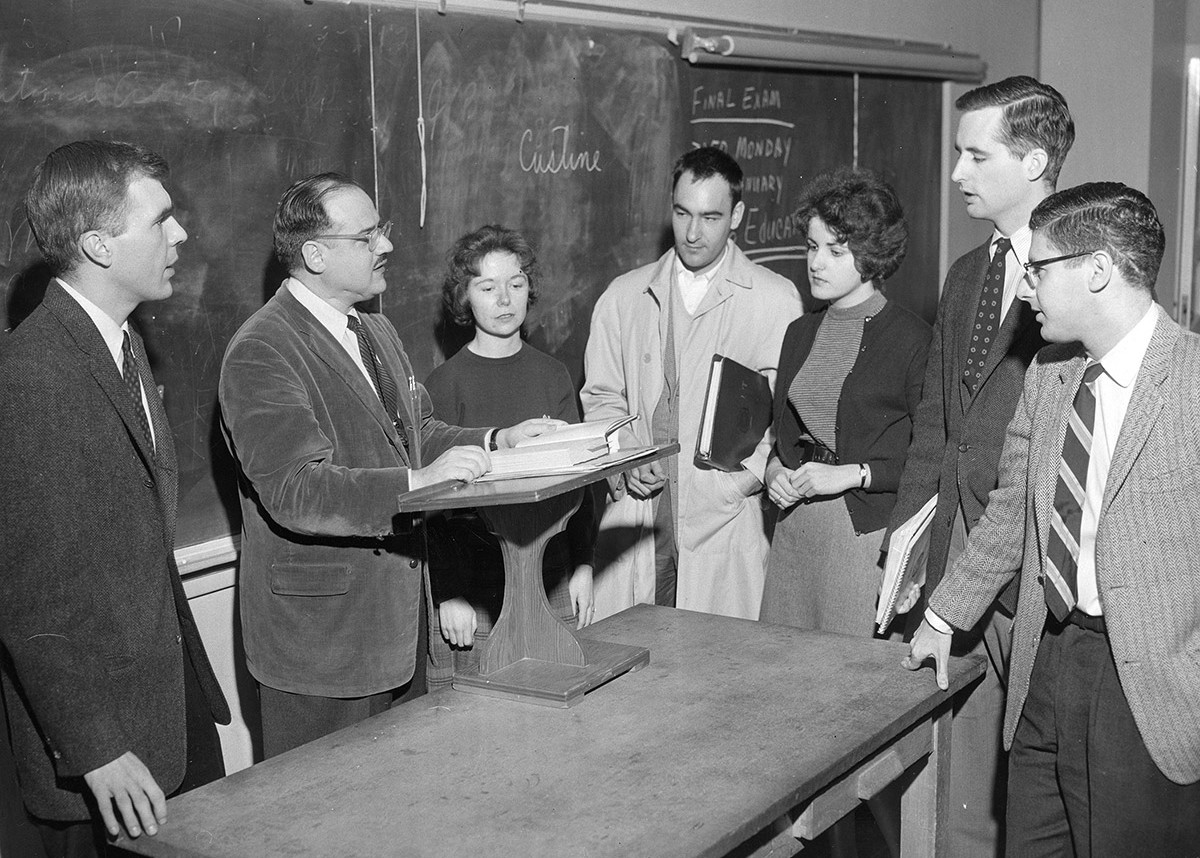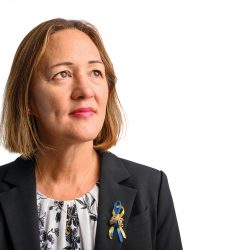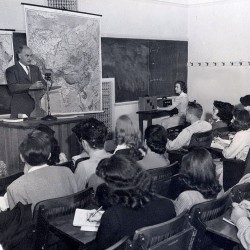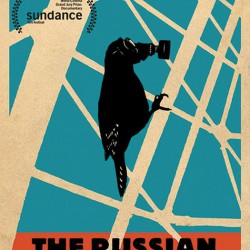Russia in Focus

In the 1950s, Russian history professor Michael Petrovich (above at podium) gave lectures on the Soviet Union and Communism that were distributed around the state via public radio and television. UW Archives s00799
After the 1957 launch of Sputnik, a Soviet satellite, the U.S. government began pumping massive amounts of cash into university programs focused on Russia.
That was a boon for the Department of Slavic Languages and Literature — the heart of Russian studies at the UW — and faculty members melded their work with the Wisconsin Idea when it mattered most.
Russian history professor Michael Petrovich, a former officer in the Office of Strategic Services (OSS), curated lectures on the Soviet Union and Communism that were distributed to Wisconsin residents via public radio and television in the late 1950s, when tensions between the two countries heightened.
Petrovich’s enterprising spirit carried on in the 1980s, when the UW made strategic hires in Russia-related fields that were the precursor to the Center for Russia, East Europe, and Central Asia (CREECA). One of them was David McDonald, who arrived as a visiting professor in 1988 and now holds the Alice D. Mortenson/Petrovich Distinguished Chair in Russian History. But interest in studying Russia has never quite returned to the level that it experienced during the Soviet era.
Today — with reports of Russia meddling in the U.S. presidential election and annexing new territory — experts agree that America is less prepared than ever to manage a calculating Kremlin with yet-to-be determined ambitions.
To address this gap, the Carnegie Corporation of New York awarded UW–Madison a $1 million grant last fall to bolster the study of Russia in the social sciences.
Called the Wisconsin Russia Project, the initiative includes hiring a professor specializing in Russia in the Department of Agricultural and Applied Economics. Funds will also be used to create and support graduate assistantships, research awards, graduate student fellowships, and a conference on contemporary Russia.
“Area studies in general have waned,” CREECA director Theodore Gerber says. “There is a need for our government and business to have expertise at the national level, so now more than ever, these federal forms of support are vital to train the next generation of experts.”
Published in the Summer 2017 issue



Comments
George Setton March 1, 2022
I was never a morning person. The only 8:50 lecture I scheduled was Professor Petrovich, because he was so good that I was willing to get up early. I’ll have a lifelong memory of listening to his superb lectures and drinking a cup of lousy machine coffee.
John S Crawford Junior MD March 6, 2022
Professor Petrovic was one of the best professors I ever had at the University of Wisconsin. Even though my major was molecular biology. He was fantastic. He was against Socialism because he said it was very similar to communism. This was after the Berlin wall that socialist bureaucrats put up. This was before the University of Wisconsin became a wing of the progressive democratic party. It was still one you could have freedom of speech at the University of Wisconsin. All praise to the Ukrainians and Professor Petrovic in the University of Wisconsin of old . Maybe the University of Wisconsin can get back to Newman lumen